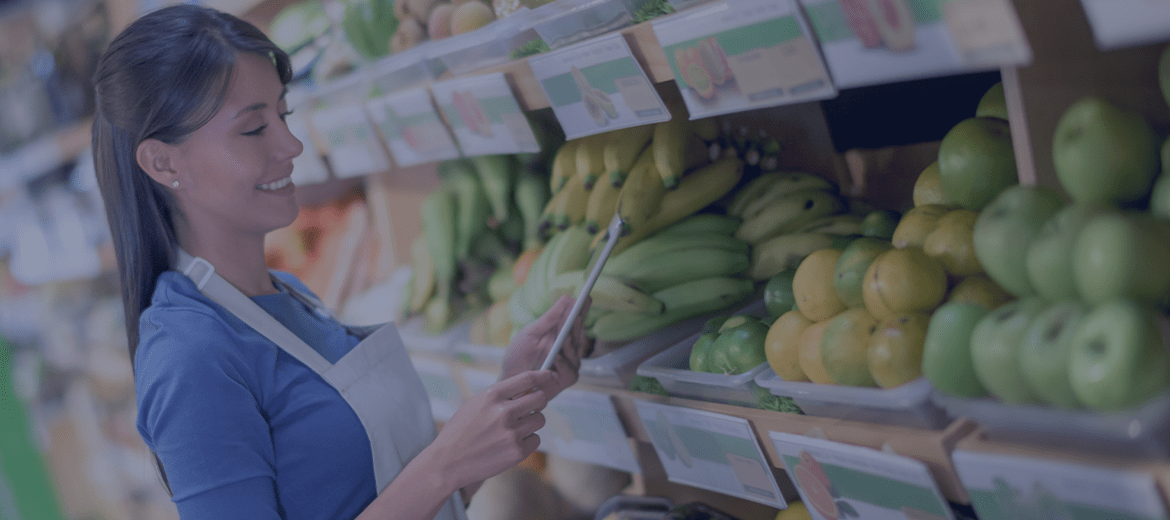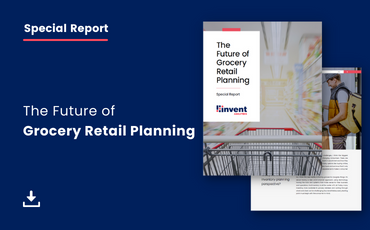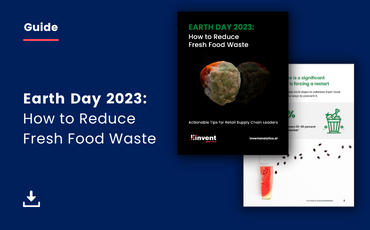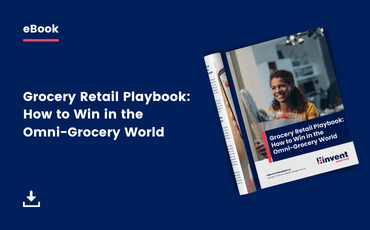
Dark Stores for Grocery Retailers: What Are They and How Do They Work?
Online grocery shopping is booming, and it is here to stay. In the U.S. alone, online grocery shopping reached nearly $95.8 billion in sales in 2023, a slight decrease of 1.2% from the previous year. The same research projects that online grocery shopping will reach nearly $120 billion annually by the end of 2028, making up 12.7% of total grocery sales in the U.S.
Many grocery retailers are now trying to meet increased demand for online delivery. They are expanding their omni-channel capabilities for online ordering and refining their storage and distribution processes. Today the challenge is: How can grocers provide great experiences all the way to each customer’s doorstep?
It all comes down to delivery and the answer lies in ‘Dark Stores’.
What is a Dark Store?
A Dark Store—also known as a micro-fulfillment center—is a location dedicated to rapid online order fulfillment. It is a small, local store but without the customers. Just like any other conventional grocery store, a Dark Store has aisles with shelving and racks for groceries.
When a customer order comes in, Dark Store employees pick and pack the items immediately. Then they either ship the order direct to the customer’s address or to a convenient collection point specified by the customer.

What are the challenges of running Dark Stores from an inventory planning perspective?
Delivery is now the cornerstone of the customer experience. Grocers are offering super speedy deliveries that can get groceries to their customers’ doors the same day or even within hours or minutes. To keep their pledge of instant shipments, retailers need to build up a new network of fulfillment and delivery centers.
Even though Dark Stores make online ordering fulfillment as simple as possible, they come with a few challenges.
1. Delivering customer service excellence at a low cost
Inventory management is central to delivering cost-effective service excellence. For grocery retailers, being a cost-leader and service-leader at the same time might seem counterintuitive. However, it’s possible to achieve this with sufficient supply chain visibility and execution.
By positioning inventory efficiently, grocers can maximize their ability to most profitably fulfill their customer demand. They can start winning on ‘customer experience’ by being more predictive when meeting customer demand, providing greater product availability in a more cost-effective manner and offering the best service, pricing and overall experience.
2. Achieving highest forecast accuracy
Accurate demand forecasting is vital for grocery retailers who want to keep up with their customers’ delivery requests. Existing replenishment and forecasting systems with old data structures don’t provide accurate, granular forecasting that separates online orders from in-store demand. They fail at making the most profitable replenishment decisions for stores and Dark Stores that fulfill the demand streams.
Unlike traditional forecasting data structures, Dark Store forecasting needs to generate highly accurate forecasts by making use of the online channel data as well as taking promotional events, local demand and competition into account.
By creating accurate, short-term baseline forecasts at the SKU/zip code/day/fulfillment preference level and forecasting demand at each location, grocers can position their inventory at the right amount at each location so that they can successfully increase their order fulfillment performance.
3. Overcoming the perishables challenge
A typical grocery order can consist of both perishable and non-perishable items. And the majority of grocery items such as dairy, meat, fruits and vegetables have a short expiration window. If the product is not fresh, it’ll result in an unpleasant customer experience.
The challenge is to make sure that every perishable item is delivered to the customer’s doorstep in its prime form. Yet, this can easily become a burdensome process for a grocery retailer.
Using Dark Stores to store and manage perishable items is a great way to overcome this challenge. Once grocers have enough space, visibility for pickers and flawless inventory management capabilities in their Dark Stores, they can maintain the ideal freshness level for perishable items and minimize the time between home delivery.

What are the benefits of using Dark Stores?
Aside from being ideally located for fast delivery operations in high order-density zones, Dark Stores offer several benefits. They enable grocery retailers to:
- Improve the efficiency of online picking operations and drive faster profitability in their online business
- Become more efficient by picking online orders in a space that doesn’t have customer traffic
- Manage inventory more effectively
- Do multiple replenishments in a day and get the planning cycles can be down to hours
- Service new customers who are far away from an existing store and where they don’t have the opportunity to open a physical store.
A bright future starts with Dark Stores
Online grocery shopping will continue to grow as customers increasingly value and demand convenience. As a result, omni-channel will be the only channel for retail. Grocery-champions of the omni-channel future will be those who orchestrate and profit-optimize their supply chain with AI-powered, advanced analytics solutions today and tomorrow.
If you enjoyed reading this, you might also be interested in our additional grocery resources:



